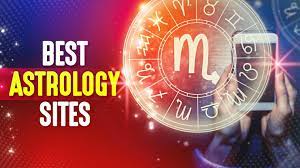Throughout human history, the cosmos has captivated us, serving as a boundless canvas of wonder and intrigue. Within this celestial symphony, best astrologer in new york has emerged as a profound lens through which many seek insight, guidance, and understanding of their lives. Rooted in ancient civilizations and cultures across the globe, astrology remains a subject of fascination and debate in the modern world.
The Foundation of Astrology: Understanding the Cosmos
At its core, astrology is the study of the movements and positions of celestial bodies, such as planets, stars, and the moon, and their purported influence on human affairs and natural phenomena. The belief that these cosmic entities hold sway over earthly existence forms the foundation of astrological practices.
The zodiac, consisting of twelve signs representing specific periods of the year, serves as a fundamental element in astrology. Each sign is associated with distinct characteristics and traits believed to influence individuals born under them. The position of celestial bodies at the time of one’s birth is thought to determine their unique personality traits, strengths, weaknesses, and life path.
Astrology’s Varied Perspectives
Astrology encompasses diverse traditions and methodologies. Western astrology, rooted in Greco-Roman teachings, primarily employs the tropical zodiac system, linking signs to the Earth’s seasons. Conversely, Vedic astrology, prevalent in India, leans on the sidereal zodiac, which accounts for the actual positions of celestial bodies in the sky.
Moreover, various branches of astrology specialize in different aspects of life. Natal astrology focuses on individual birth charts, providing insights into personality traits, life events, and potential challenges. Mundane astrology examines broader societal trends and global events, while horary astrology seeks answers to specific questions based on the moment they’re asked.




